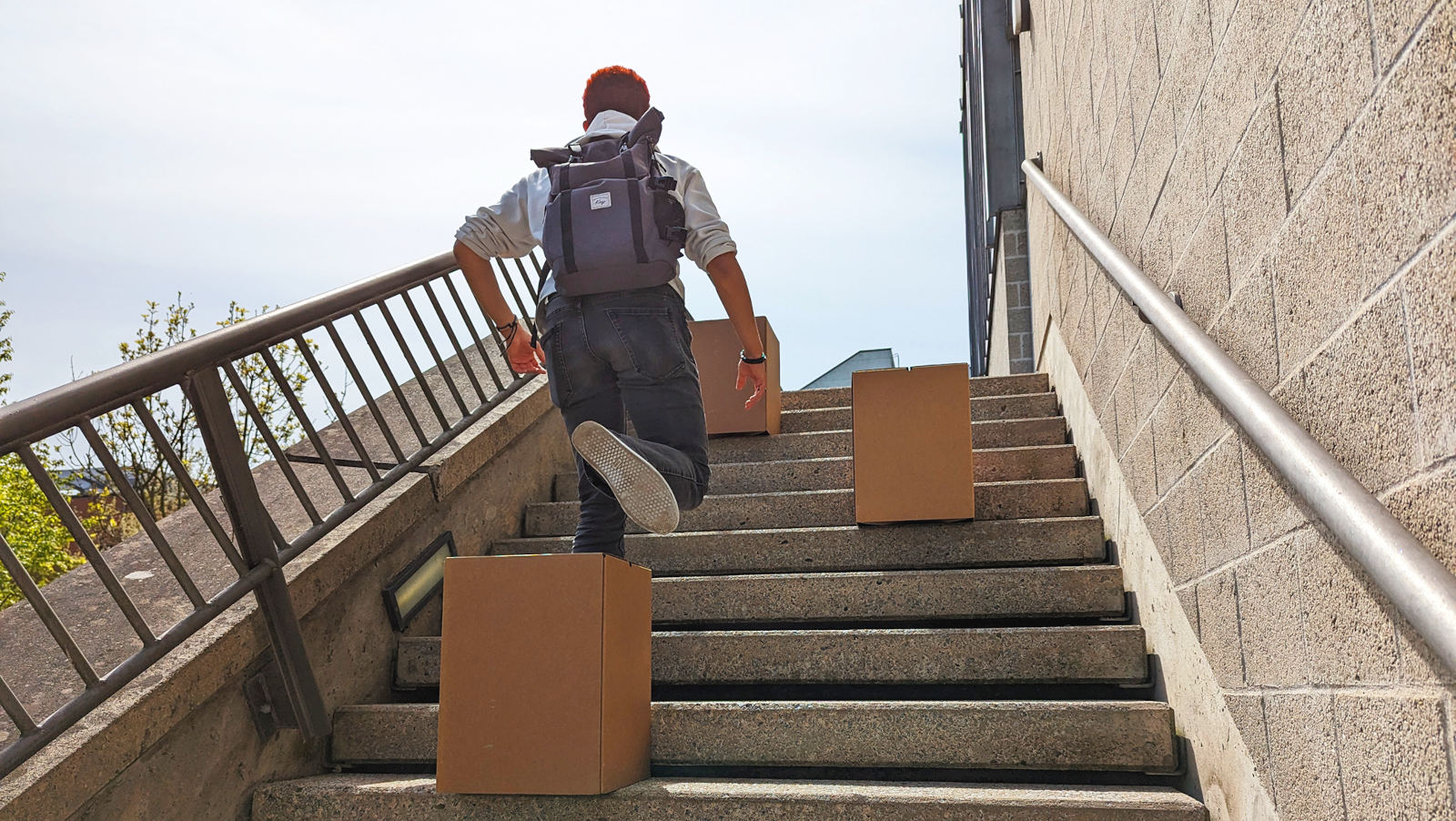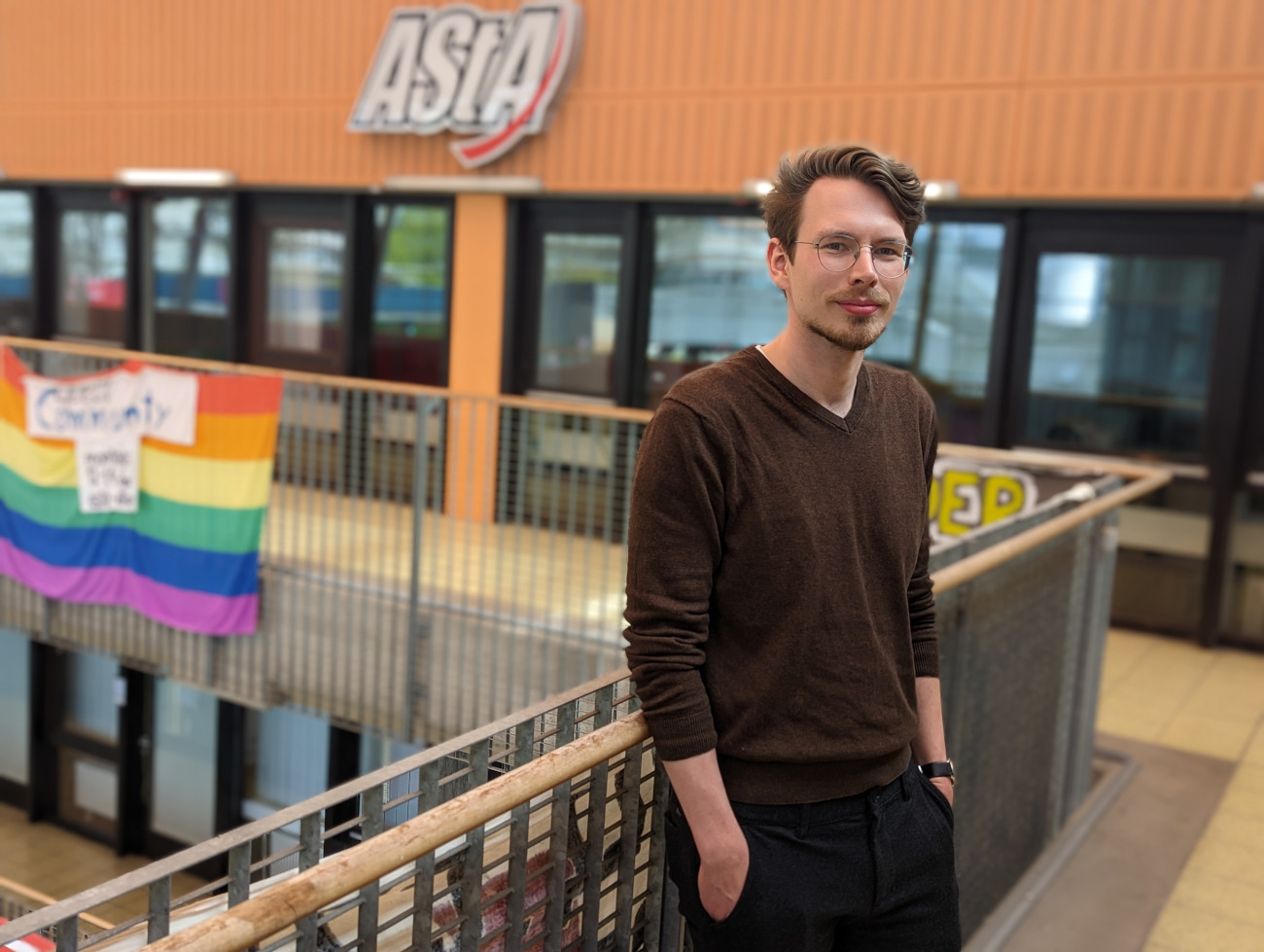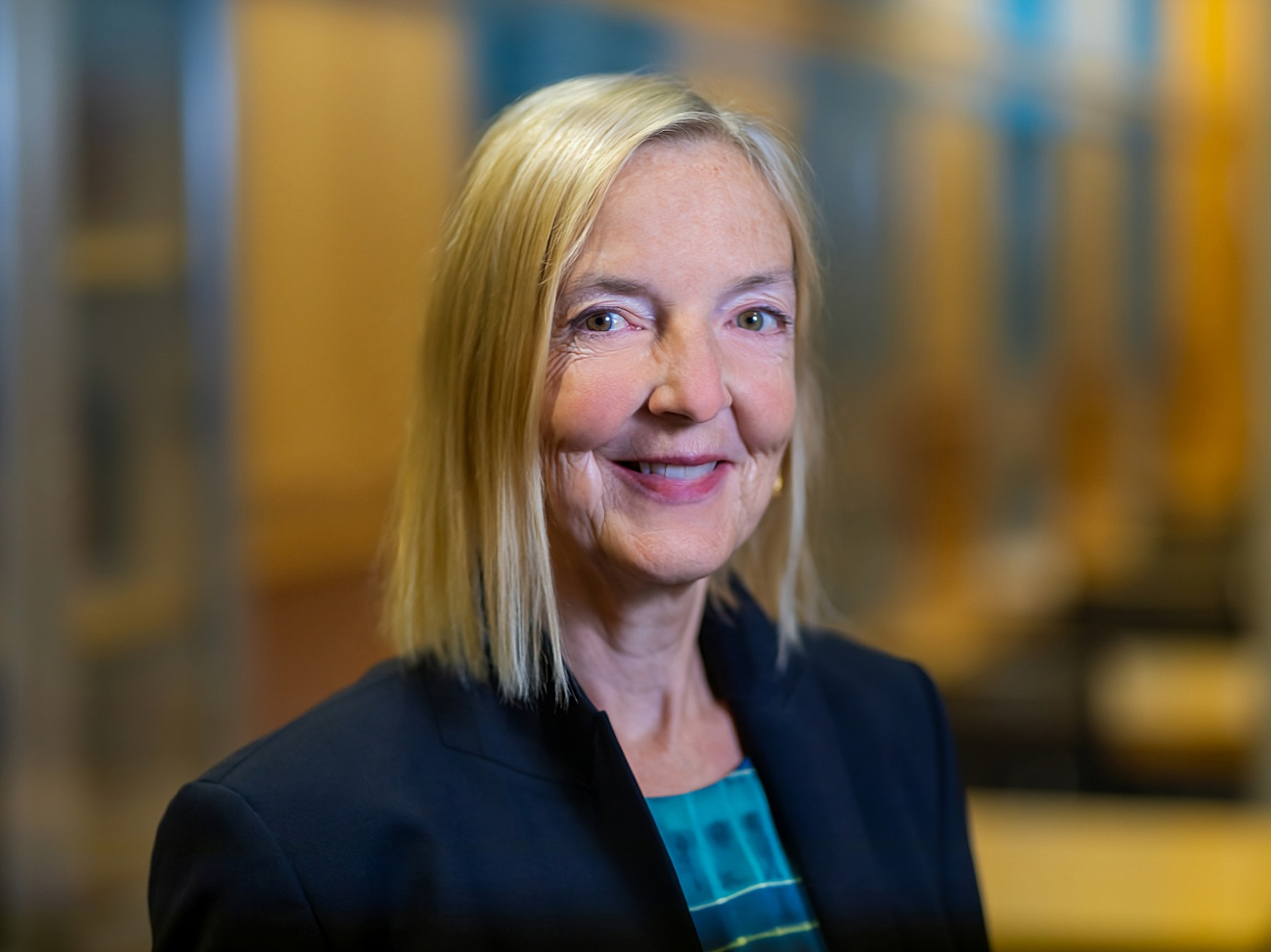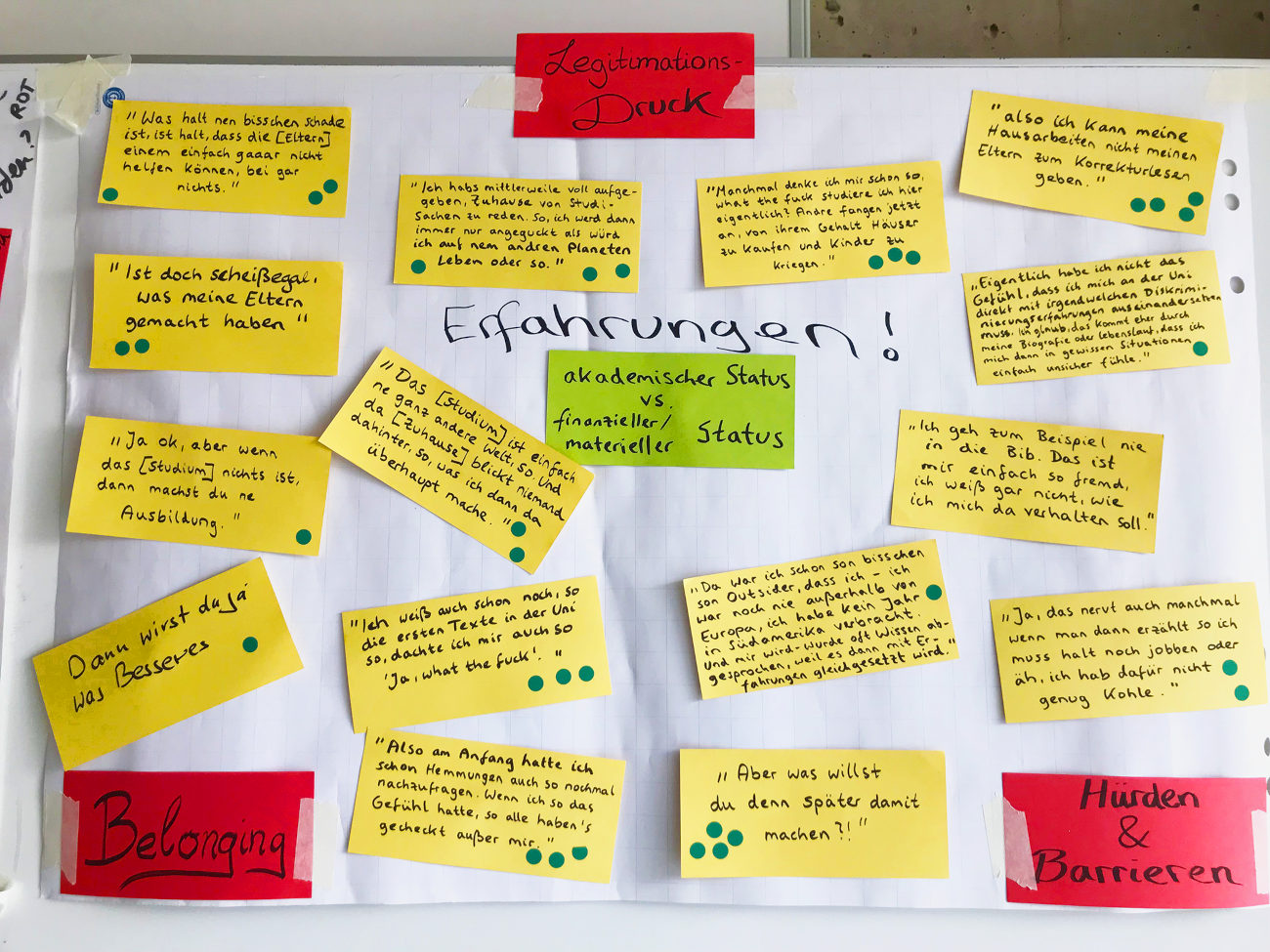
© Universität Bremen
Classism at University: An Unrecognized Problem?
In conversation with researchers Ayla Satilmis and Margrit Kaufmann as well as the student Dominik about equal opportunities and educational justice at university
At university, class no longer plays a role – many would disagree with this thesis. This is also the case for Dominik Lange, Ayla Satilmis, and Margrit Kaufmann. up2date. talked to the three university members about classism – i.e. discrimination based on class – how this might be counteracted, and their personal experiences.
Sustainability and Social Justice Are Connected
Dominik Lange is committed to sustainability at university and in society, not just in terms of environmental sustainability, but also social sustainability. “The central question is how we treat the resources we have today so that they can still be used in the future. This also includes healthy working conditions or eliminating discrimination. Sustainability cannot stop at technological issues, but must also include social aspects,” summarizes Lange.

© Universität Bremen
“A basic problem,” explains Ayla Satilmis, responsible for the “enterscience” project focusing on intersectionality in academia, “is that by focusing on ecological and economic issues, the social dimension of sustainability often remains unseen. The interactions between social justice and sustainable transformations are generally still not enough addressed.” She argues for a multifaceted understanding of sustainability, which understands the climate crisis in the context of racism, classism, and the reduction of social and societal inequalities.
But how does this manifest itself with regard to classism? How does discrimination based on socio-economic background present itself in university life? Do students from non-academic families really have disadvantages because of their background? And how can this be determined? Margrit Kaufmann and Ayla Satilmis are looking into these questions. “For example, when it comes to student dropout rates, people often say that certain groups of students are not motivated or good enough. The structural problems are not taken into account. For example, students without well-off parents have to work much harder to afford going to university. Many people in academia often simply forget this fact. Reflecting on the unequal study conditions is fundamental to good teaching and also a central educational task that still receives too little attention,” explains Ayla Satilmis.

© Universität Bremen
Margrit Kaufmann also identifies isolation as a definite problem in this context: “Shame prevents people from talking about their experiences of classism. The students often act as lone warriors, as they have no common wording for their problems yet. It ought to be more widely recognized that educational equity is not yet achieved, but a goal to strive for.”
But what could be improved? Dominik Lange believes that students should be encouraged to get more involved: “To this end, the relevant conditions must be created, such as paying students who are involved in university politics attendance fees as a form of compensation. Many people are not even aware of the problem, that students also have other obligations. Financial compensation, in many cases, would allow for this kind of engagement to happen in the first place.”
Many Students Do Not Have the Terminology to Talk about Classist Discrimination
In this context, Margrit Kaufmann presented a project from her research. In the summer semester 2022, cultural studies students conducted research on experiences of racism and classism on campus and came to a surprising conclusion: “Many respondents have a diffuse sense of being “different” and experience “othering” that they attribute to their non-academic backgrounds. University at first seems to be a liberation from the school system and a place where they finally feel they have arrived. In the course of their degree, the university once again shows itself to be a place with many obstacles, where students with less economic, cultural, and social capital have to work much harder than others,” explains Kaufmann.

© Universität Bremen
Dominik Lange graduated from middle school and only afterwards completed his university entrance qualification. He reports on his contradictory experiences at university. On the one hand, he finally felt he had arrived, but at the same time, he didn’t feel he belonged. Ayla Satilmis also confirms his observations: “Although many students from non-academic families have similar experiences, these problems are not perceived as a structural problem.”
These experiences often result in students having a negative self-perception, which conveys the feeling of “not really belonging.” Ayla Satilmis has some ideas on how to address this problem: “Reflections on inequality in the classroom and better student support from diversity-conscious teaching staff would be important steps to empower structurally disadvantaged students. But often precisely those who need advice do not receive it – and hardly find any role models in the university system. Teaching staff also need to be trained not only to look at shortcomings, but also to look at students’ strengths and notice their learning progress. Another problem is precarious employment, which is accompanied by great planning insecurities for teaching staff and students and leads to the reproduction of socially privileged positions.”
“However, there is also a sense of optimism”
However, during the interview, it was emphasized that there is a sense of optimism at the University of Bremen. Ayla Satilmis comments: “Current developments show that something is changing. Issues that were ignored a few years ago are now increasingly discussed, such as racism, classism, or anti-discrimination. I would also include the new university executive board’s commitment to sustainability, which is already bringing about positive changes.” Some examples are cooperative teaching research projects on these topics and the new university teaching-staff training courses, which are attracting a lot of interest. Teaching staff are trained in how teaching and learning can become more sustainable and what diversity-aware teaching settings look like. Satilmis is in charge of this project.
Services at the University of Bremen
If you are experiencing discrimination based on class, there are different services at the University of Bremen you can take advantage of. For example, you might be able to start pursuing a degree without a university entrance qualification via the Trial Studies program if you meet certain professional criteria. Additionally, there are some scholarships and funding options available. Since April 1, 2023, the AStA Students’ Union has established a specific unit, which deals with the issue of anti-classism. You can contact them on antiklassismusref@disroot.org.
Theme of the Month: Sustainability
Since its foundation in 1971, the University of Bremen has been committed to social responsibility. Climate protection and sustainability are fundamental principles guiding the university: in research, teaching, and operations. For this reason, up2date., the University of Bremen online magazine, will focus on the topic of sustainability in May. The theme of the month explores current projects, issues, and challenges.